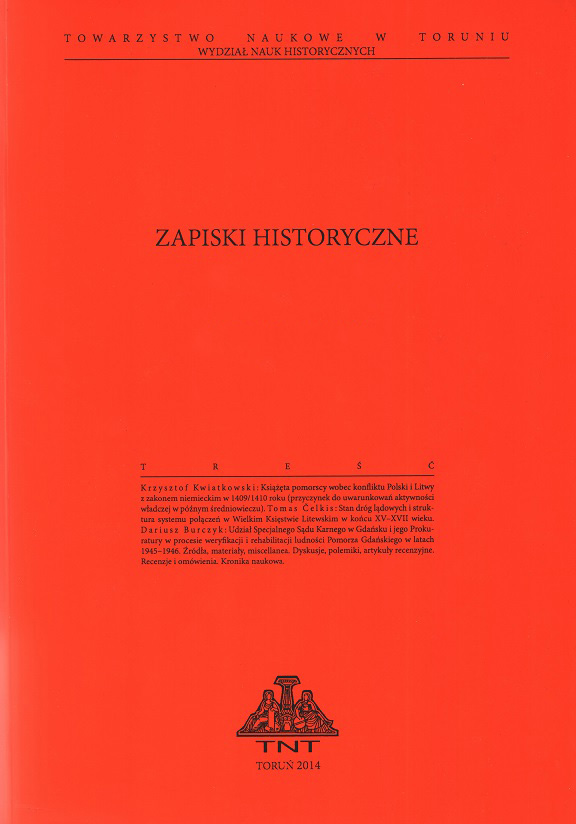System wspierania rodzin żołnierzy niemieckich w latach pierwszej wojny światowej na przykładzie Szczecina
The System of Supporting Families of German Soldiers in the Years of WWI on the Example of Szczecin
Author(s): Agnieszka SzudarekSubject(s): Economic history, Military history, Social history, Pre-WW I & WW I (1900 -1919)
Published by: Towarzystwo Naukowe w Toruniu
Keywords: Germany;war benefits;everyday life;German Empire;the emancipation of women;
Summary/Abstract: The article was devoted to the system of supporting families of soldiers fighting on the front, which was set up in Szczecin – the main city of the Prussian Province of Pomerania. The system was based on the legislation introduced in the Reich at the end of the 19th century. The research aim is to look for the specific nature of the actions undertaken by the authorities of the city as against other cities which also launched such similarities. The first part of the article is devoted to the principles according to which the system of supporting families of soldiers was founded with particular emphasis on its significance for inhabitants of German towns. The second part of the article deals with the practical side of the system, in particular with the forms and organization of the assistance offered by the authorities of Szczecin. According to the regulations included in the legislation, the state guaranteed allowances to the wife, children and other family members maintained by a conscripted soldier, but certain conditions had to be fulfilled. Allowances were financed by the budgets of the communes and counties with a reservation that the sums assigned for this purpose would be returned to them from the central budget. In the first days of August the authorities of Szczecin started to pay out the allowances guaranteed by the regulation. They also decided to pay to families of soldiers optional city allowances, which, despite the fact of being provided for in the regulation, were not reimbursed by the state. Those allowances were complemented with additional forms of assistance financed by the special civil budget and the city military social care established at the end of August 1914. In terms of organization, the association referred to as the National Service of Women, set up in Szczecin upon the Berlin pattern in the first days of the war, played a major role. In practice, the legislators’ intention to introduce allowances financed by the state was not carried out. The financial aid was financed mainly from the communes’ budgets and they would not have supported soldiers’ families properly without the allowances financed by the city. Additionally, new regulations enforced from the beginning of 1916 converted the allowances into a form of social aid for families of soldiers from the lowest social strata.
Journal: Zapiski Historyczne
- Issue Year: 83/2018
- Issue No: 2
- Page Range: 107-133
- Page Count: 27
- Language: Polish

